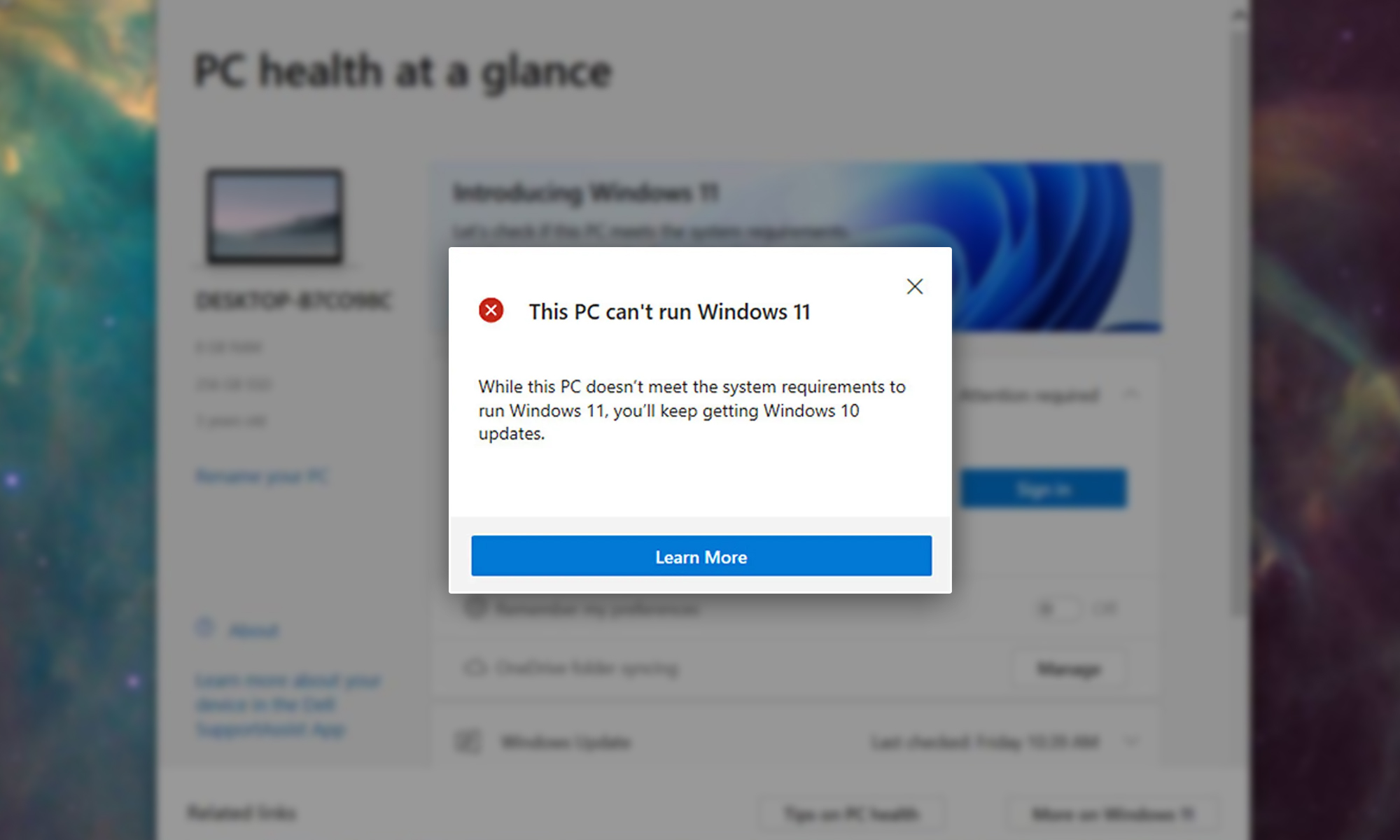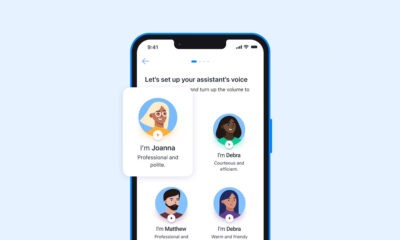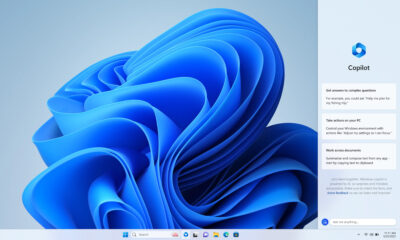News
Windows 11 Won’t Support Many Modern PCs – Is Yours Among Them?
Users whose PCs don’t meet the system requirements can continue to use Windows 10, whose official support ends October 2025.

Microsoft has officially unveiled the next-generation version of its operating system, called Windows 11. In addition to a brand-new look, Windows 11 introduces a whole host of productivity improvements, including new ways to manage applications, support for widgets, and the integration of Microsoft Teams into the taskbar.
The only problem is that many Windows 10 users may not be able to upgrade to Windows 11 — even if their PCs are just a few years old. Why? Because they don’t meet the Windows 11 minimum system requirements:
Windows 11 System Requirements
- Processor: 1 gigahertz (GHz) or faster with 2 or more cores on a compatible 64-bit processor or System on a Chip (SoC)
- Graphics Card: DirectX 12 compatible graphics / WDDM 2.x
- Memory: 4 GB RAM
- Storage: 64 GB or larger storage device
- TPM: Trusted Platform Module (TPM) version 2.0
If your motherboard is equipped with a TPM module, then the Windows 11 system requirements probably don’t seem too strict to you. Well, that’s because you don’t know that Microsoft is officially supporting only a relatively small number of Intel and AMD processors, regardless of how powerful they are.
For example, Intel processors compatible with Windows 11 date back to only mid-2017. The situation is even worse when it comes to AMD processor, whose support start with 2nd gen Ryzen (2018). Microsoft has decided to take this drastic step to deliver the most secure and stable Windows experience possible.
Also Read: Microsoft To Finally Retire Internet Explorer In 2022
You can verify if your PC meets the minimum system requirements using the official PC Health Check app (not available at the time of writing this article because Microsoft has decided to temporarily remove it).
Users whose PCs don’t meet the system requirements can continue to use Windows 10, whose official support ends October 2025. While Microsoft still hasn’t announced an official release date for the next version of Windows, recent reports indicate that date will most probably be October 20, 2021.
News
Mamo Completes $3.4M Funding Round To Enhance Fintech Services
The startup will use the influx of cash to expand into Saudi Arabia and across the wider GCC while improving its product offering.

UAE-based fintech Mamo has announced the completion of a $3.4 million funding round that will help the startup extend its market presence and improve its product offering. Investors included 4DX Ventures, the Dubai Future District Fund and Cyfr Capital.
Mamo’s platform offers “payment collection, corporate cards and expense management” to help small and medium-sized businesses consolidate and streamline their operations. With the latest influx of capital, Mamo will further develop its comprehensive suite of services and begin testing its product lines in Saudi Arabia, further extending its footprint across the GCC.
Imad Gharazeddine, co-founder and CEO of Mamo, stated: “We’ve been in the market for a while now and are incredibly proud of what our team has achieved. The holistic and expansive nature of our product offering has helped us continue to grow sustainably. This additional funding will allow us to reach our medium-term goals even faster. The support from new and existing investors is a testament to our strong expertise and the ability to deliver on our customer promise”.
Daniel Marlo, General Partner of lead investor 4DX Ventures, added: “We have immense trust in Imad’s vision, leadership and Mamo’s innovative approach to provide a user-friendly and comprehensive financial solution for SMEs that makes financial management more accessible and efficient. We are proud to partner with them and support their mission”.
Also Read: A Guide To Digital Payment Methods In The Middle East
Amer Fatayer, Managing Director of Dubai Future District Fund’s investment team, also commented: “Mamo’s localized product lines serve as an infrastructure for SME payments and spend management in UAE, a segment that is underserved by the country’s current banking infrastructure. The team has taken a product-first approach to consolidating SMEs’ financial journeys and building a fintech solution deeply embedded in a business’s core operations”.
To date, Mamo has raised around $13 million in investment funding and now boasts a team of 30 people. The company’s intuitive financial services platform has allowed over 1,000 businesses to consolidate their financial operations and significantly reduce payment fees.
-

 News4 weeks ago
News4 weeks agoAmazon Prime Day 2024: Get Ready For 6 Days Of Amazing Deals
-

 News4 weeks ago
News4 weeks agoSamsung Unpacked 2024: What To Expect From The July 10 Event
-

 News4 weeks ago
News4 weeks agoCoursera Report Shows Surge In UAE Interest In AI Upskilling
-

 News4 weeks ago
News4 weeks agoMeet Dubai’s Groundbreaking Smart Robot Delivery Assistant
















